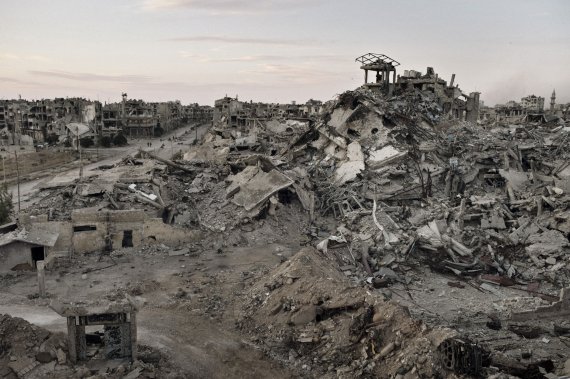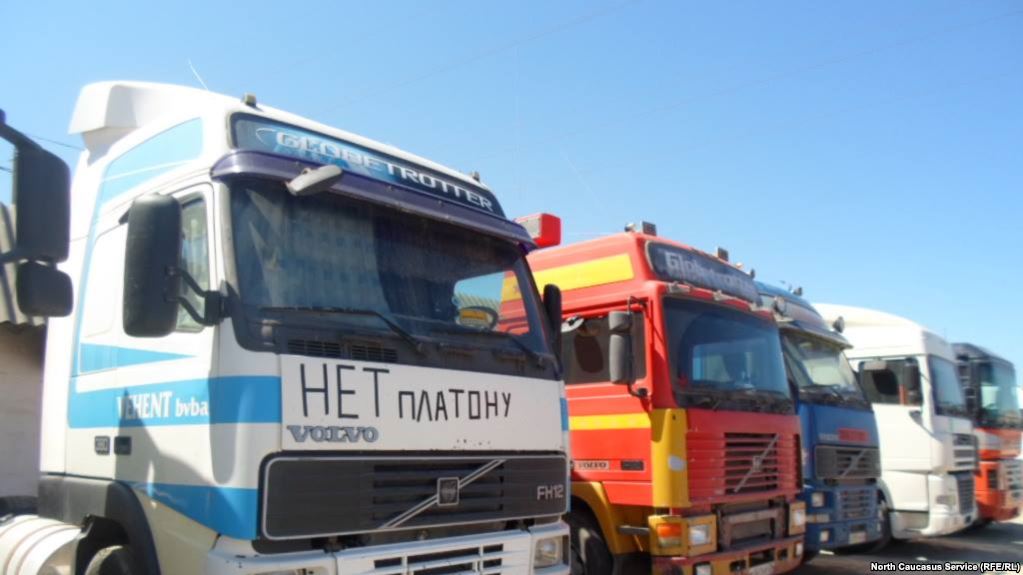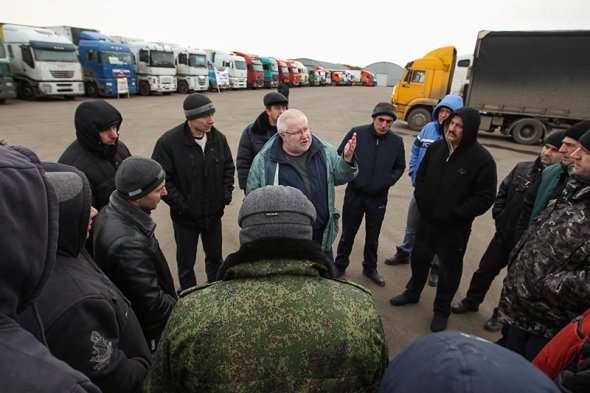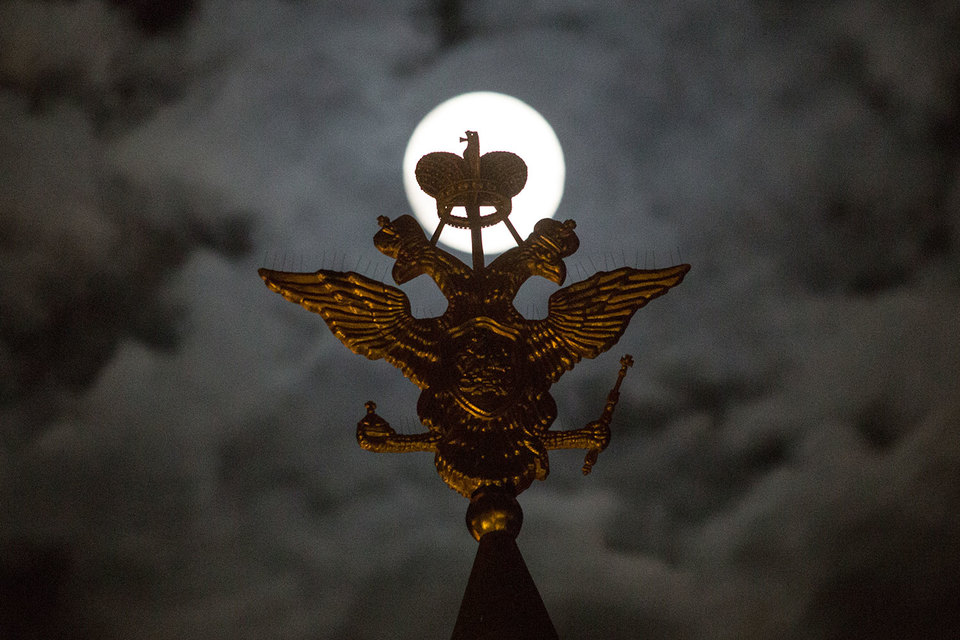The flood of news stories from a country as large, diverse and strange as the Russian Federation often appears to be is far too large for anyone to keep up with. But there needs to be a way to mark those which can’t be discussed in detail but which are too indicative of broader developments to ignore.
Consequently, Windows on Eurasia each week presents a selection of these other and typically neglected stories at the end of each week. This is the 92nd such compilation, and it is again a double issue with 26 from Russia and 13 from Russia’s neighbors. Even then, it is far from complete, but perhaps one or more of these stories will prove of broader interest.
1. Does Hollywood Now Have the Best Kremlinologists?
Hollywood writers have removed Vladimir Putin from two films scheduled to be released next year, an indication that perhaps they do not expect him to be in office by then – or at least relevant to Western audiences.
Meanwhile, Russians found out just how little impact complaining to the Kremlin leader can have. After Murmansk residents told him that they didn’t have hot water, Putin fixed the problem: they got hot water for exactly 20 minutes and then it was cold once again.
Other Putin news this week:
- A Russian female activist who posted an image of Putin as a Nazi was jailed for three days
- The network of souvenir shops for the Uralvagonzavod factory which Putin used as a centerpiece in his last campaign and is the manufacturer of Russia's new-generation tank T-14 Armata closed because of debt
- Putin eliminated the last vestiges of competitive democracy by requiring that even opposition candidates be cleared by Kremlin officials
- And a British newspaper has published an unconfirmed report that Putin now routinely bathes in the blood from severed deer antlers in order to prolong his life.
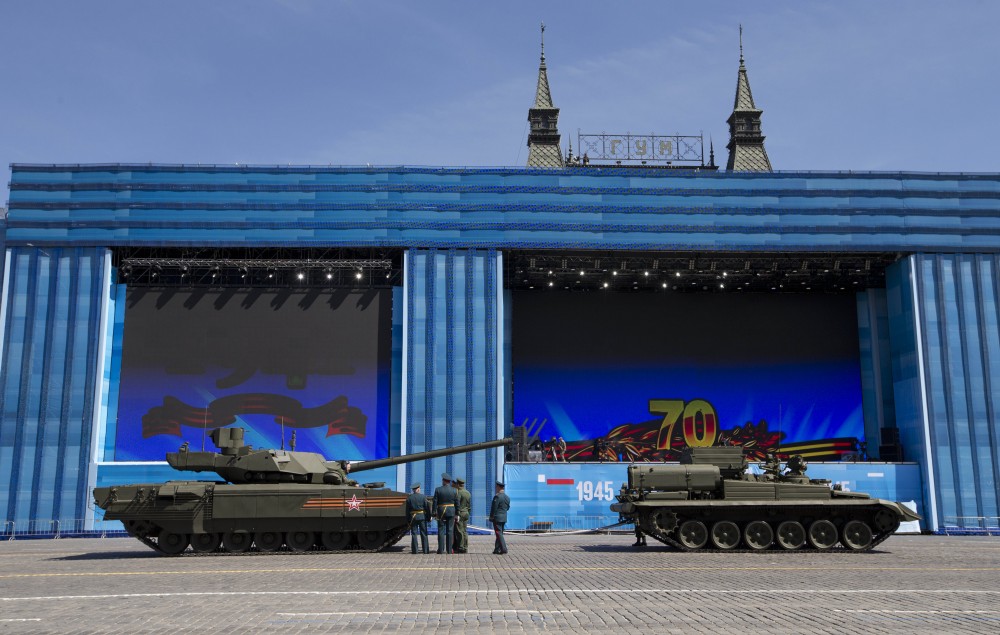
2. Putin Views Trump as Russian Agent, Felshtynsky Says
Yury Feltshynsky, a Russian specialist on Moscow’s security services now living in the US, says that Vladimir Putin views Donald Trump as just the latest Russian agent these services have recruited. Whether that is true or not remains to be seen, but one thing is certainly the case: Russian agents of influence have now had an impact not just on the US president but, as one would expect from Soviet and Russian precedents, on a far larger cast of characters in the US, including some in the now ruling Republican Party (regnum.ru, thedailybeast.com and theatlantic.com).
There may be trouble ahead for these relationships, however. On the one hand, Putin clearly does not understand that the American political system is not dependent on one man or even a few but on a large number of institutions and understandings.
And on the other, Trump has nominated a Mormon as the next US ambassador to Moscow. Given that the Mormons may not be a target of the Putin regime after its attacks on the Jehovah’s Witnesses, that sets up a potential conflict that few have yet been focusing on.
3. Russian Economic Prospects at Macro Level Anything But Rosy
Russia faces a long period of relatively slow GDP growth, something that will mean the country will fall further and further behind the rest of the world, according to Russian bankers.
In other bad macro-economic news:
- Russians are now recognizing that their currency, the ruble, is at best a regional one, freely convertible only in Moscow-dominated structures in Eurasia
- The country’s commercial river fleet is collapsing, thus eliminating one of the main integuments holding the economy together
- And even Russian officials now project that oil prices will remain low for many years, thus eliminating the possibility for a miracle that would turn the country’s economy around.
4. 6,000 Dollar Millionaires have Fled Russia in Last Three Years
In a vote of no confidence about Russia’s future, 6,000 Russian dollar millionaires and billionaires have fled the country over the last three years, adding to the 14,000 others who left over the previous decade. Among other related news:
- Most of Russia’s middle class has been hard hit by the economic crisis
- Wage arrears are increasing across the country
- Russians are cutting back vacation travel even domestically
- Personal debt now exceeds 650 billion rubles (11 billion US dollars)
- And the market basket of basic foods continues to increase in price thanks to weather-induced shortages.
5. Three-Quarters of Russian Government Social Payments Don’t Go to the Neediest
Russian social welfare payments generally go to those who need them least, with only a quarter going to Russia’s poorest people. But there are many other social problems that were highlighted in the Russian media this week:
- More than half of Russians with university degrees can’t work in the fields they were trained for
- Russian officials are exploring whether spinners are subversive
- Russia’s educational system thanks to Putin’s optimization program has been compared to the Titanic hitting the iceberg
- Russia faces a serious honey shortage
- The Duma has now permitted Russian airlines to charge passengers for checked baggage onboard
- Vodka production rose 57 percent in the first quarter despite Moscow’s claims that Russians are drinking less and talk of ending alcohol sales on weekends (newsland.com, iz.ru and iz.ru)
- Russia is drowning in trash, something sparking protests and concern in many places
- Ever more men are turning to prostitution to make ends meet
- And strip clubs are closing down at increasing rates across Russia.
6. Putin’s Maternal Capital Program Helping to Make Russia Less Russian
Because of its poor design, Vladimir Putin’s maternal capital program is boosting or at least maintaining already high birthrates in Muslim areas while doing little or nothing to prevent the decline in birthrates among ethnic Russian women. Indeed, an increasing share of the latter are choosing to be childless, something driving down the share of ethnic Russians in the population.
While immigration has been compensating for about two-thirds of the indigenous decline, Moscow officials say that immigration is now falling and so won’t be doing that in the coming years.
More bad demographic news can be expected next year when Russia will run a pilot census in advance of the regular one scheduled for 2020.
Meanwhile, Russia’s health crisis continues to deepen:
- Ninety-five percent of the country’s doctors say the health sector is now a disaster
- The quality of medicines is declining as fast as their availability
- An HIV epidemic has broken out in Novosibirsk
- And patients with rare diseases are increasingly having to go to court to force hospital administrators to give them the medications they need.
7. Russia Ranks Near Bottom in the World on Pensions But Top People Take Care of Themselves
Russia ranks in the bottom five of 43 countries evaluated in terms of support for pensioners, but senior officials like the president and prime minister have planned pensions 46 times those of the Russian average.
8. Chechnya Should Vote on Independence, Commentator Says
Leonid Gozman says that Chechnya clearly needs to have a referendum on whether to become independent of Russia.
Meanwhile, Moscow appears desirous of provoking a conflict with Tatarstan by failing to agree to any extension of the power-sharing accord with Kazan.
Interethnic conflicts in Daghestan are now so intense that Moscow has formed a commission to try to figure out what to do to rein them in (chernovik.net, nazaccent.ru and onkavkaz.com).
One nationality, however, is getting some of what it wants: the 97 Yiddish speakers in Birobidzhan are going to be allowed to have street signs in their native language in its alphabet on the streets of the Jewish Autonomous Oblast, something Moscow has opposed allowing all other nationalities to do.
An activist in Siberia has been arrested for promoting pan-Finnic ideas, and the Altay peoples and their related nations have held a forum in Bishkek to promote “Altai civilization.”
9. Moscow Increasingly Worried about Regionalism in Russia
The Russian central government is increasingly worried about the revival of regionalist ideas in predominantly ethnic Russian regions and is working to block independent-minded Russian candidates from running for governors and possibly promoting this trend.
Meanwhile, there is increasing appreciation among Russian regions that Tatarstan’s fight for an extension of the power-sharing accord is not just about the non-Russians but about the future of federalism for everyone, and officials have cracked down hard on those in Kaliningrad who they say are promoting regionalism and even separatism there (ruskline.ru, glavny.tv and newsbalt.ru).
10. Orthodox Church Doesn’t Want State to Supervise Its Activities
The Moscow Patriarchate of the Russian Orthodox Church is making it clear that it doesn’t want the state interfering with its activities although it feels free to reject government requirements and laws governing the treatment of minors and finger-printing (hraniteli-nasledia.com, politsovet.ru, pravmir.ru and newsbabr.com).
And the Russian church has succeeded in freezing out all other denominations from television, the most important communications channel in Russia.
But one interesting development this week occurred among another group: the pagans, out of which emerged a new court case about the supposed harm caused by offending their feelings (ng.ru and spektr.press).
11. Duma Deputies Press Putin for Legalization of Handguns and Concealed Carry Rights
A group of Duma deputies has called on Vladimir Putin to support legislation that would allow Russians to own handguns and carry them in a concealed way.
Meanwhile, in other domestic security developments:
-
- It was reported and then denied that Moscow had reduced the staffs of its anti-extremism units
- Putin elevated the Russian Guard, which reports directly to him, to the status of a strategic enterprise meaning that its funding is largely beyond touch
- More corruption and illegal use of force was discovered among senior FSB officers
- Draft resistance appears to be spreading in some Russian areas
- Putin signed a law depriving those draftees who test positive for drugs of military benefits
- Sakhalin residents fearful of radiation have asked Moscow to raise two atomic bombs located under water near their shores
And Russian airports are increasingly in trouble with inadequate flight control and weather protection (newsland.com, siberiantimes.com and kommersant.ru).
12. Syrian War has Cost Russia 140 Billion Rubles Already, Yabloko Says
The Russian government refuses to publish figures on the cost of its military intervention in Syria, but the Yabloko opposition party says that it estimates that Moscow may have spent 140 billion rubles (2.2 billion US dollars) there already.
Russian officials have also worked hard to conceal military losses there.
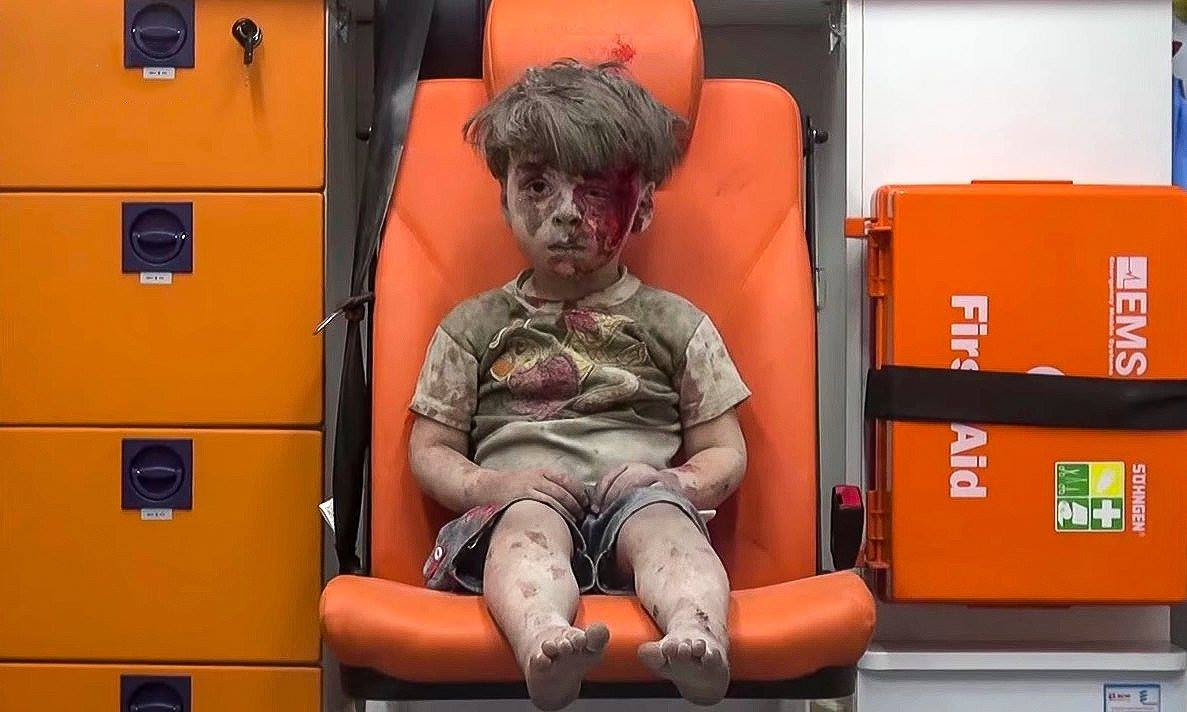
Other foreign policy and security news this week included:
- Experts say Russia can’t compete without an aircraft carrier fleet and can’t afford to build one
- Moscow’s decision to send a Typhoon-class submarine from Murmansk to the Baltic on the surface has sparked suggestions that this was an act of intimidation or that it may mean the ship has serious problems when it is submerged
- Russia is rapidly losing its ability to be competitive in space
- Officials announced plans to expand Russia’s export of nuclear technologies in order to make money
Moscow celebrated as a diplomatic triumph its success in getting the countries of the Organization for the Collective Security Treaty to fight revisionism on World War II.
13. Protesters have Figured Out How to Foil Face Recognition Technologies
Moscow thought it could intimidate people into not protesting by deploying facial recognition technologies and then publishing lists of participants in demonstrations, but protesters have figured out some simple and inexpensive ways to foil such systems and disseminated information about them on social media.
Meanwhile, protests continued to expand geographically and in terms of subject. Among the most intriguing this week were:
- Protests against communal costs and renovations in numerous cities (novayagazeta.ru, newsland.com and kasparov.ru)
- Plans for a celebration of the birthday of Eduard Rossel, a leading Russian regionalist
- And the blocking of the Roskomnadzor building in Moscow
For those tracking where demonstrations are happening, Federal Press has begun issuing interactive maps by region (fedpress.ru and fedpress.ru).
14. Kremlin Assaulting Freedom of Expression Across the Board, Human Rights Watch Says
The international human rights group says that in every sector it monitors, the Kremlin has cracked down hard over the last year. Evidence of this includes:
- Moscow now leads in requests to Google to take down stories the Kremlin doesn’t like
- The European Human Rights Court is taking ever more appeals from Russians about their mistreatment
- And the number of snitches in the Russian population has risen to unprecedented levels.
Meanwhile, while many in the West view anti-gay oppression and violence as a Chechen problem, new reports show that it is ever more a Russian problem: The Soviets imprisoned approximately 1,000 gay people every year from 1934 on for their sexual orientation and Russia continued this trend, although jailing only 100 a year, and this week an Omsk store refused to hire a gay sales person.
Other repressive actions this week:
- The Duma passed a law giving the government control of the election of the president of the Academy of Sciences
- The legislature passed an unconstitutional measure allowing the authorities to deprive anyone who the authorities consider to be a "terrorist" or "extremist" of Russian citizenship
- Russia’s schools have been ordered to introduce a special set of lectures on the Crimean Anschluss
- Journalists are now being threatened by anonymous people for anti-government actions
- Persons unknown splashed known journalist Yulia Latynina’s residence with an unknown substance
- The Duma approved the oath people must take in order to become Russian citizens
- And Duma members complained that secularism, although included in the constitution, is “destructive for morality.”
Meanwhile, lawyers pointed out that many judges are filing inaccurate declarations of income or claiming they have law degrees when they don’t.
15. Russia’s Fans Increasingly Rowdy and Increasingly Political
Russian soccer fans have shocked many by their racist rants and nudity, things that could cause problems if Moscow is allowed to host the 2018 FIFA World Cup. But most fans continue to enjoy the support of the authorities because they back Kremlin causes like traditionalism and support for Russia’s imperial past.
Meanwhile, Moscow boasted that it had solved its doping problem even as it complained that Russian athletes were being discriminated against by international sports federations.
16. Russia’s Monuments Wars Heat Up on Anniversary of Murder of Imperial Family
Russians in various cities marched to mark the anniversary of the Bolshevik murder of the members of the Imperial Family and also to attack any criticism of the last tsar as in the film Mathilda (themoscowtimes.com, rusk.ru and newsland.com).
Statues of Nicholas II went up as others were attacked and as politician Vladimir Zhirinovsky called for renaming Sverdlovsk Oblast because its name refers to one of those who ordered the killing of the Imperial Family (politsovet.ru and nakanune.ru).
Other skirmishes in the monuments wars included:
- Yekaterinburg residents are collecting money for a memorial to Osip Mandelshtam
- An Irkutsk court is considering whether to allow statues of Admiral Kolchak to remain in place
- A historian recalled that the Soviets considered renaming Moscow four times, once for Lenin and three times for Stalin
- A statue of Lenin was beheaded in Pervouralsk
- And residents in Stavropol are being offered a new drink, carbonated Stalin war.
One commentator has called for a truce in these wars, suggesting that all toponyms and monuments should feature only cultural figures and not political ones.
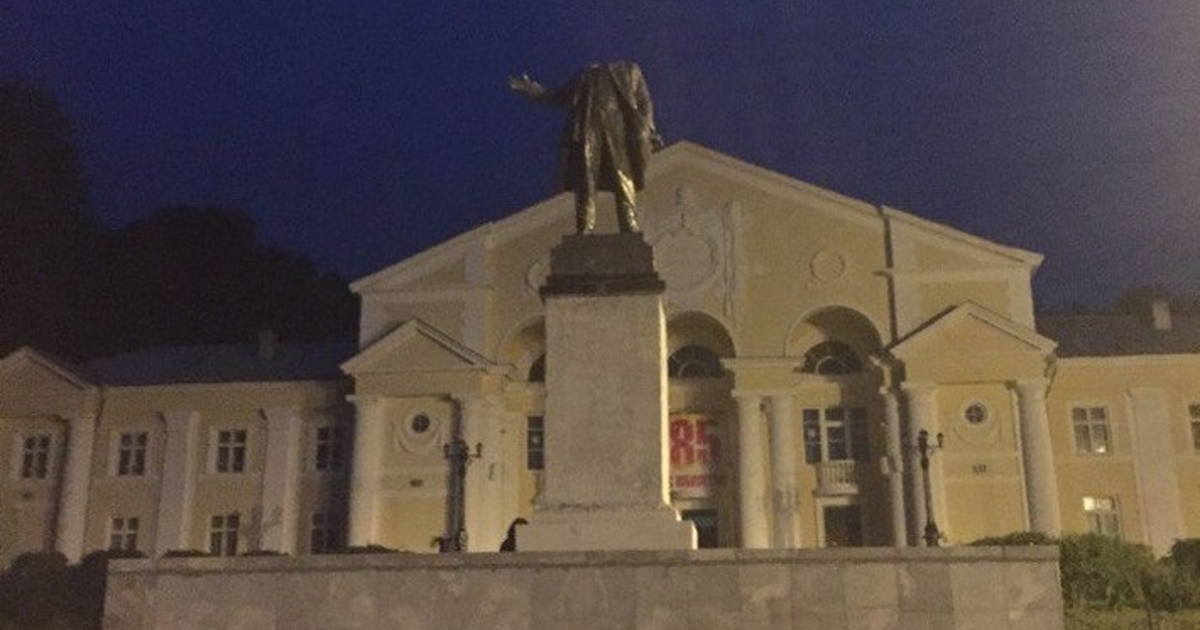
17. Russians Worried about Increasing Number of Russian Women Marrying Chinese and Turks
Russians have always been concerned about those of their number who marry foreigners, an act they see as threatening to the cohesion of the Russian nation. Now, complaints about this center on Russian women who choose to marry Chinese or Turkish men.
18. Zhirinovsky Predicts Social Explosion in Russia
Vladimir Zhirinovsky, the flamboyant head of the absurdly named Liberal Democratic Party of Russia but often a bellwether of elite opinion, said this week that if the economic situation continues to deteriorate, Russia will likely face a social explosion.
19. Opposition to ‘Russian Nation’ Law Intensifies
Ever more residents of the Russian Federation are expressing their opposition to the draft Russian law that defines ethnic Russians as the state-forming nation, viewing this as an indication that in Russia today, “all citizens are equal but some are more equal than others.”
20. Defense of High Pay for Deputies Sparks Debate
The defense last week of a decision by one regional legislature to double their own salaries while leaving the pay of teachers and the doctors where it was has sparked a lively debate across Russia about who should get what and whether the government is responsive to the needs of the people.
21. Average Russian Bribe Now 10,000 US Dollars, Interior Ministry Says
The MVD says that it has calculated that the average bribe in Russia now amounts to 614,000 rubles, almost exactly 10,000 US dollars at the current rate of exchange.
22. If You Look at Russia from Alaska, What You’ll See Isn’t Pretty
Those who suggest that they can “see Russia” from Alaska would be horrified, if they actually could, by the sad state of affairs in the Chukotka peninsula with its dying cities and impoverished people. For an amazing collection of photographs comparing Chukotka and Alaska, see newsland.com).
23. International Tribunal Orders Moscow to Pay 5.4 Million Euros for 2013 Seizure of Greenpeace Ship
An international tribunal organized under the auspices of the Law of the Sea Treaty has ordered Russia to pay 5.4 million euros in compensation for its seizure of the Greenpeace ship, “Arctic Sunrise,” in 2013.
24. Russians Fearful Baikal Becoming ‘a Chinese Lake’
Given Moscow’s agreement with Beijing to allow China to take massive amounts of water from Russia’s most famous lake, many Russians fear that their national treasure is becoming “a Chinese lake” and that that trend presages even more loss of Russian control in Siberia and the Far East.
25. Most Russians Swear They Don’t Swear, New Poll Finds
A new survey finds Russians saying that they don’t swear even though massive evidence shows that most do.
26. 53 Russians Think Long Term about Living in a Post-Putin Russia
Fifty-three Russians have frozen their bodies so that they can be revived at some distant point in time, a reflection of their apparent view that only then will things be better and of the fact that there are massive problems witnewizv.ru/news/tech/18-07-2017/s-nadezhdoy-na-voskreshenie-v-rossiyskom-kriohranilische-zamorozheny-53-chelovekah Russian cemeteries, including the fact that in 90 percent of them, no one is sure who owns them and thus how they may be disposed of in the future (newizv.ru, hse.ru and snob.ru).
And 13 more from countries in Russia’s neighborhood:
1. Estonia, Latvia and Lithuania Lead Incomes in Post-Soviet Space
Estonia has the highest average monthly income of any in the region, twice that of Russia which is in fourth place and more than ten times that of Turkmenistan which is in last.
28. Russian Organized Crime Again Expanding in Ukraine, Kyiv Officials Say
Russian organized crime groups have increased their activities in Ukraine in recent months, giving Moscow yet another lever against the Ukrainian government.
29. Ukrainians Officially Own Nearly One Million Guns, Unofficially Many More
Ukrainians have legally registered ownership of more than 900,000 guns, Kyiv officials say; but unofficially, there are likely three or four times that many in private hands.
30. Ukraine Ends Requirement that Documents Be Stamped
In yet another small but significant step of moving away from Russian domination, Ukrainians no longer need to have documents stamped by various officials as was the case in Soviet times, according to a new regulation.
31. Minsk Refuses Moscow’s Request to Supply Peacekeepers for Syria
Belarus, following two Central Asian countries, has turned down Russian requests for troops to back up Moscow’s “peacekeeping” operations in Syria.
32. Minsk Wants to Exploit, Control Belarusian Diaspora
Minsk is reaching out to the four million plus Belarusians living abroad in the hopes of using them to promote Minsk’s policies but it is offending many by its heavy-handedness in dealing with them.
33. Belarusians Replacing Russians as Key Tourist Group in Ukraine
Ever fewer Russians are traveling to Ukraine this summer, but ever more Belarusians are, according to Kyiv statistics.
34. Minsk Begins Repaying Hated Vagrants Tax
The Belarusian government has begun repaying to its citizens the vagrants tax that sparked protests earlier this year.
35. Armenian Parliamentarians Reject Moscow’s Request to Make Russian State Language There
Armenian deputies are outraged that Moscow would even consider requesting that they make Russian a state language in their country.
36. Turkmenistan Blocks All Social Networks
Turkmenistan, the most closed-off post-Soviet state, has now blocked all social networks, including Russian ones, on its territory.
37. Turkmen TV Now Features Live Readings of President’s Books
Turkmen television viewers are being given a special “treat.” TV channels there are featuring live readings of the entire works of the country’s president for life.
38. Tajikistan Wants to Shift Outmigration from Russia to Arab World, Europe
Dushanbe, worried about its dependence on remittances from Tajik gastabeiters in Russia, has announced a program to promote those who want to work abroad to go to Arab countries or Europe rather than Russia.
39. Kazakhstan Won’t Ban Jehovah’s Witnesses
Unlike some former Soviet republics who tend to follow Moscow’s lead especially when it comes to repressive measures, Kazakhstan has announced that it will not ban the Jehovah’s Witnesses as Russia has done.
Related:
- ‘Kremlin’s G-20 photofake to make Putin look important’ and other neglected Russian stories
- ‘Lavrov confirms Russian forces intervened in Ukraine’ and other neglected Russian stories
- ’14 million Russians don’t have enough money even for food’ and other neglected Russian stories
- 10-dollar Putin icons and other neglected Russian stories
- “Moscow’s appropriation of Ukrainian history not limited to Queen Anna Yaroslavna” and other neglected Russian stories
- “Putin said to orchestrate Trump’s impeachment” and other neglected Russian stories
- ‘3 million people fled from Russia-occupied Donbas’ and other neglected Russian stories

